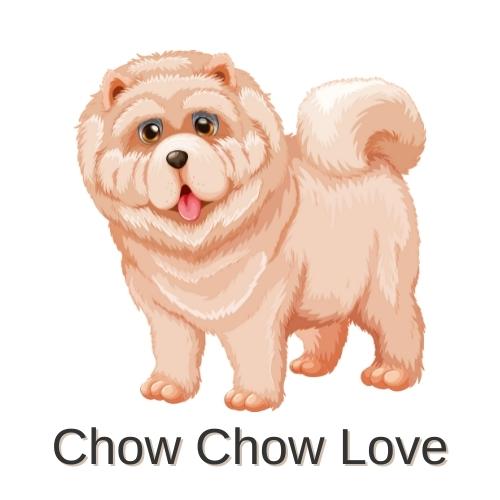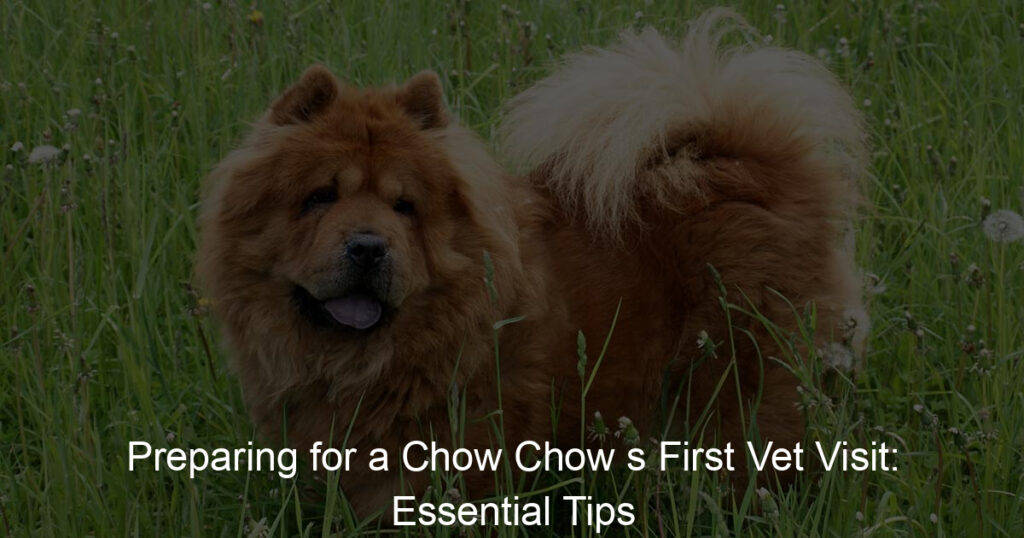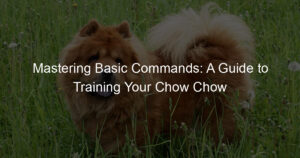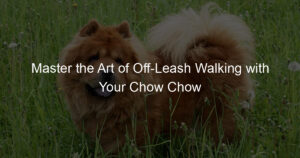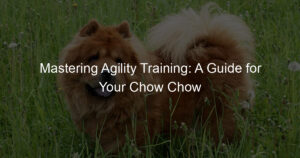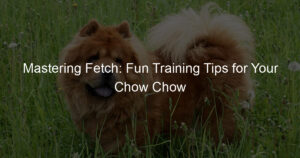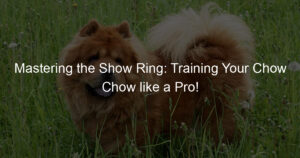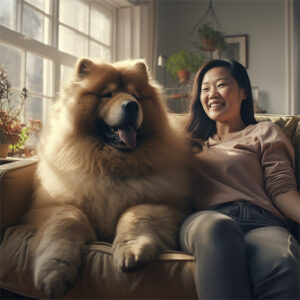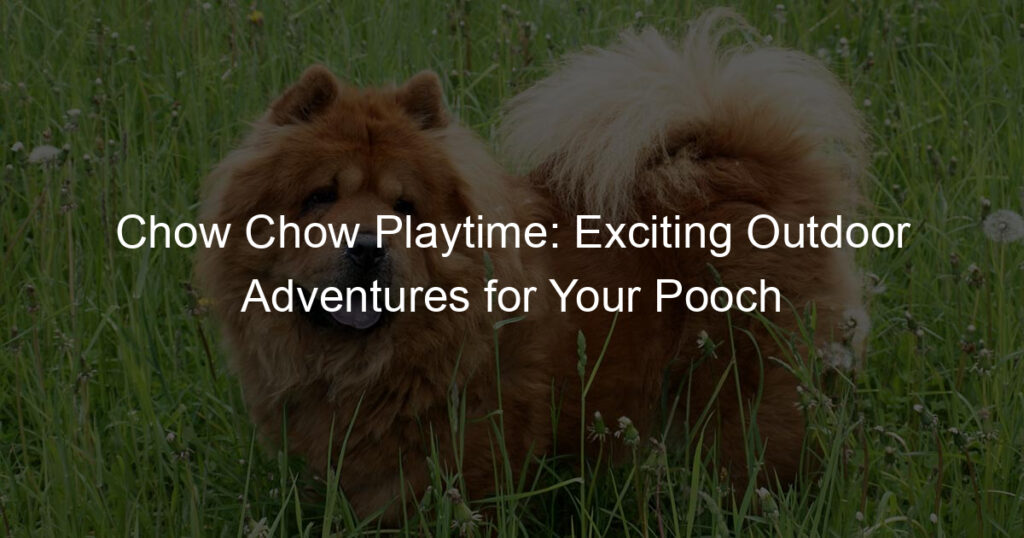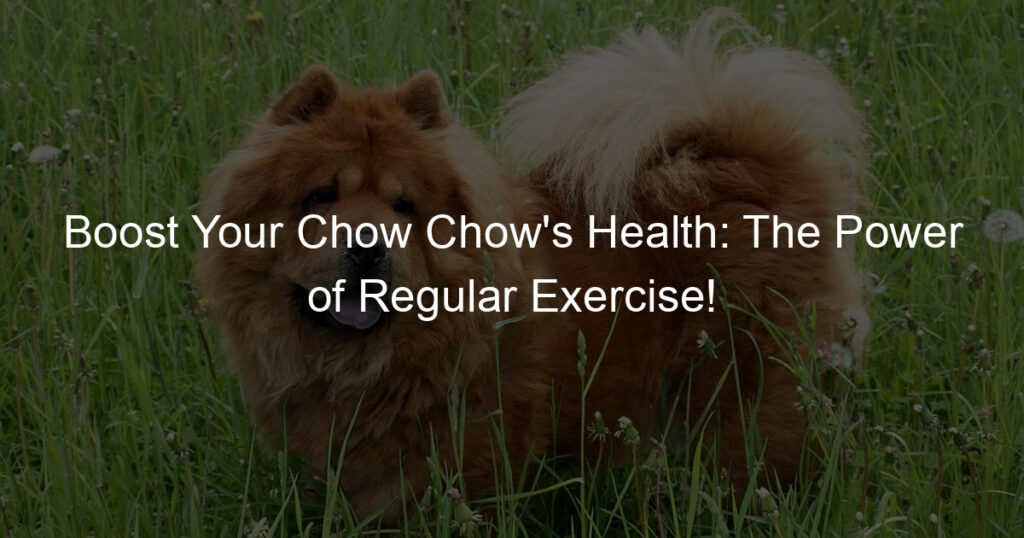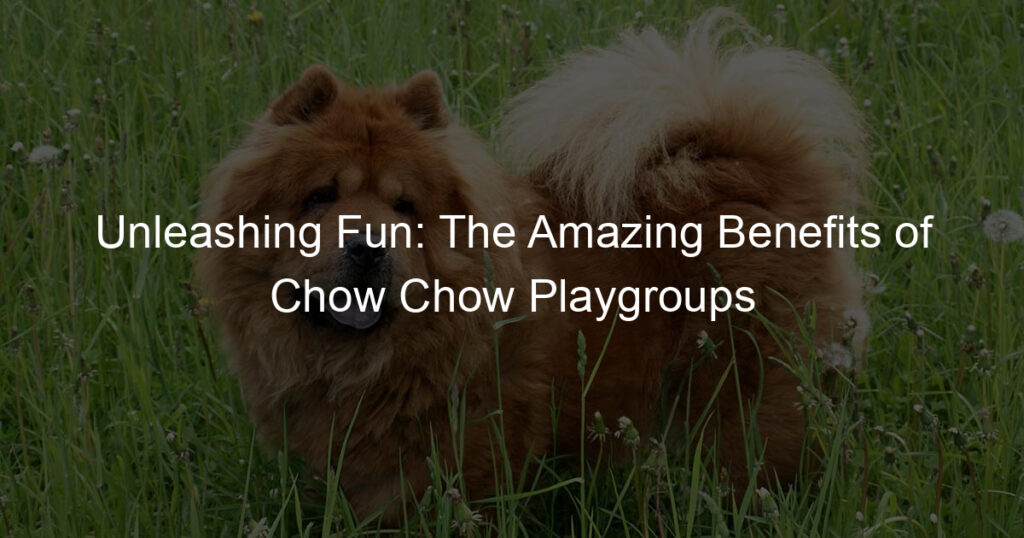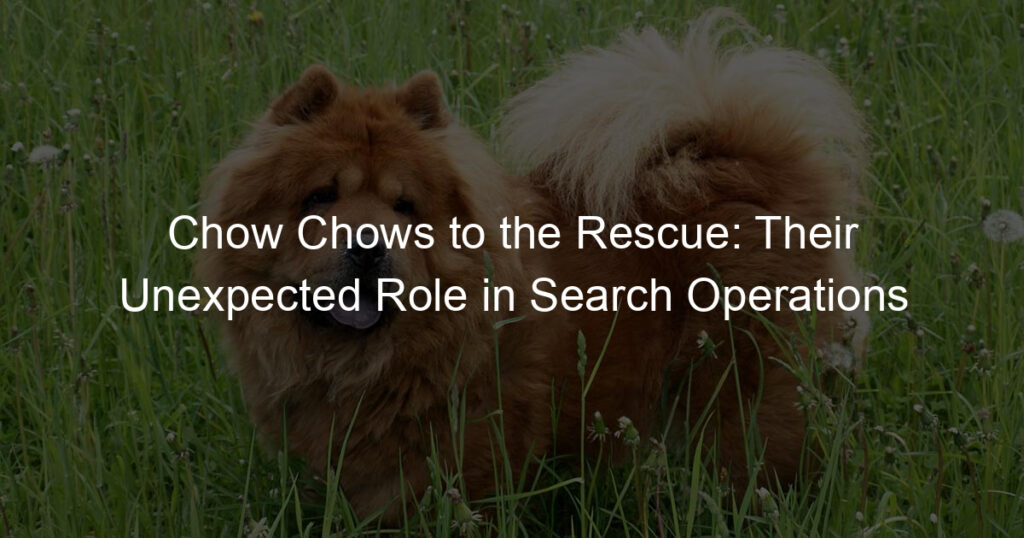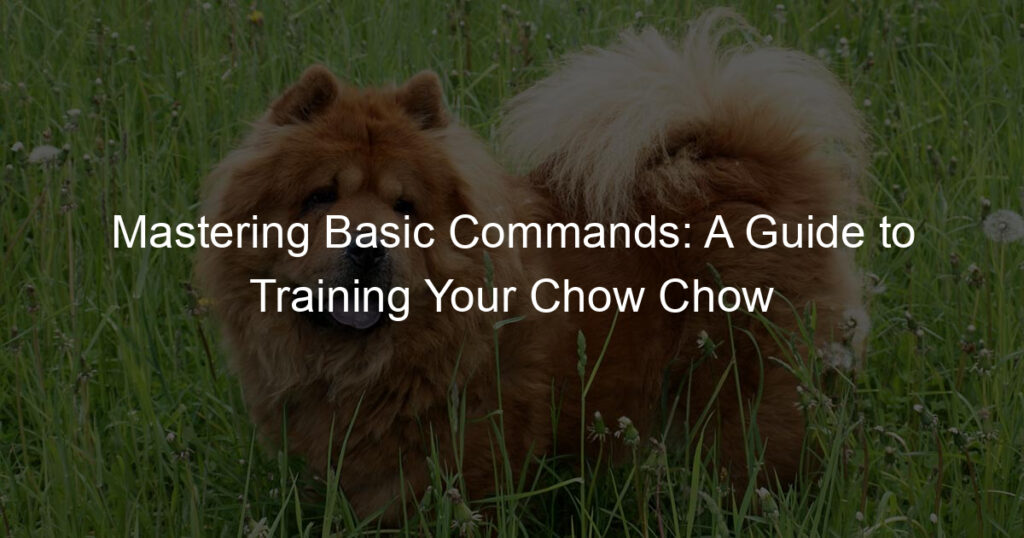Bringing home a Chow Chow can be an exciting and rewarding experience. As a new pet parent, it’s essential to ensure your fluffy companion receives proper care and attention, starting with their first vet visit.
This first appointment not only establishes a relationship with your vet but also helps set the foundation for a healthy, happy life for your Chow Chow. That leads to the fact of preparing for a Chow Chow s first vet visit.
Your Chow Chow’s distinct characteristics and temperament set them apart from other breeds, so it’s important to familiarize yourself with their unique needs. Knowing what to expect during the first vet visit will help reduce anxiety and enable you to actively participate in your dog’s healthcare journey.
A well-prepared first visit will allow your vet to accurately assess your Chow Chow’s health and offer personalized care recommendations.
Key Takeaways
- Familiarize yourself with Chow Chow-specific needs before the first vet visit
- Be prepared with any relevant history and information on your dog
- Establish a trusting relationship with your vet for future care and consultations
Preparing for a Chow Chow s First Vet Visit
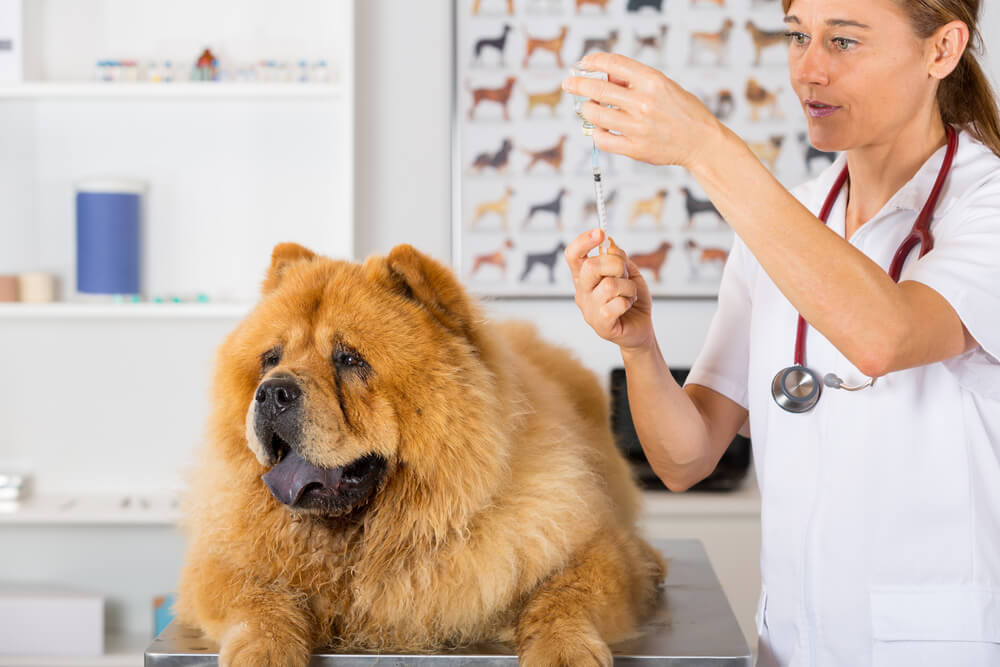
First and foremost, it’s essential to understand your Chow Chow’s unique characteristics and traits. Chow Chows are known for their stately bearing, blue-black tongue, and lion-like mane, making them a distinctive breed in appearance.
These dogs have an independent nature and desire trust from their owners. They appreciate feeling like their own decision-makers, which is why they may sometimes seem aloof.
Before your Chow Chow’s first vet visit, it’s helpful to know about their exercise requirements, as maintaining a healthy and active lifestyle can prevent health issues. Aim for two 15-minute walks per day to keep your Chow Chow in good physical condition.
Tug-of-war and hide-and-seek are excellent indoor activities, while hiking can be a great bonding activity if it isn’t too strenuous.
Proper grooming is essential for Chow Chows, as their thick double coat requires more attention than other breeds. Regular brushing and grooming sessions will help manage shedding, prevent matting, and maintain their coat’s health.
Introduce your Chow Chow to grooming tools and techniques at a young age to make the process smoother and less stressful for both of you.
As a Chow Chow owner, you should also be aware of their dietary needs. It’s crucial to feed them a balanced and wholesome diet to support their overall health and well-being.
Consult with your veterinarian during the first visit to determine the appropriate food and portion sizes for your Chow Chow, taking into account their age, weight, and activity level.
In summary, understanding your Chow Chow’s unique characteristics, exercise requirements, grooming needs, and diet will help you be better prepared for their first vet visit.
This knowledge will not only make the visit more productive but also contribute to your Chow Chow’s long-term health and happiness.
Selecting a Vet
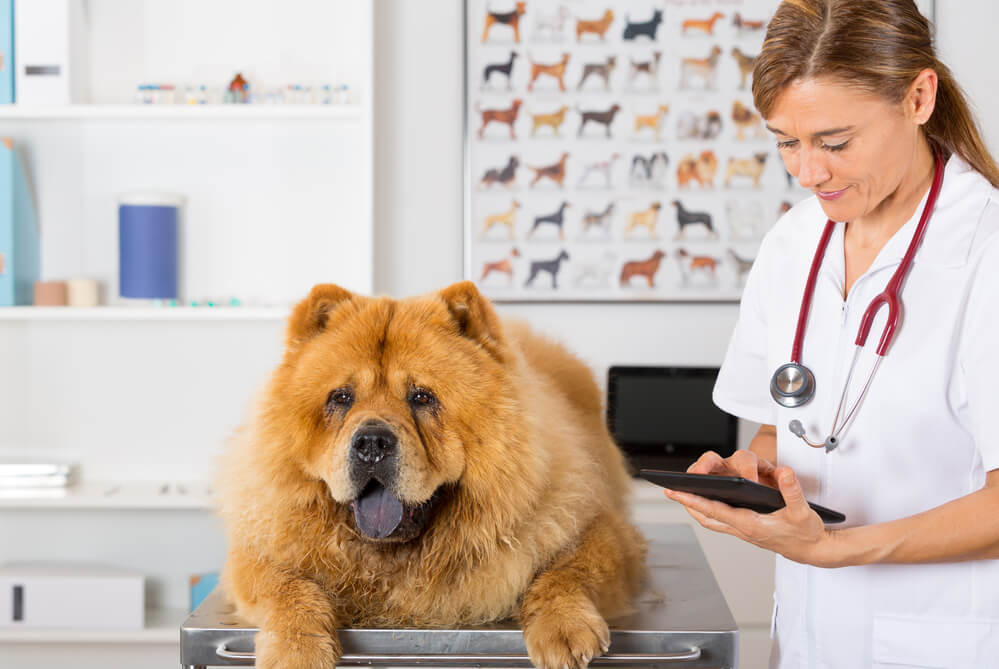
When choosing a vet for your Chow Chow, it’s essential to consider a few key factors to ensure your pet receives the best possible care.
Experience in Chow Chows
It’s crucial to find a veterinarian who has experience with Chow Chows, as these dogs may have unique health concerns and temperament traits. Look for a vet who is familiar with the breed and can provide tailored care based on your Chow’s needs. One way to find a vet with Chow Chow expertise is to seek recommendations from other Chow Chow owners or local breed clubs.
Accessibility of Services
Location and availability of services should also play a role in your decision-making process. Your chosen vet should be conveniently located near your home, making it easy to access routine appointments and necessary services. Additionally, the veterinary clinic should offer flexible scheduling to accommodate your needs and be willing to work with you to maintain your pet’s well-being.
Emergency Services
Finally, it’s essential to consider the availability of emergency services. In the event of a health crisis, having access to prompt and reliable emergency care can make a significant difference in your Chow Chow’s outcome.
Confirm whether the veterinary clinic you’re considering provides emergency services or can refer you to a trustworthy emergency facility nearby.
Carefully considering these factors and keeping your Chow Chow’s unique needs in mind can select a veterinarian who will provide excellent care for your pet throughout their life.
The First Visit
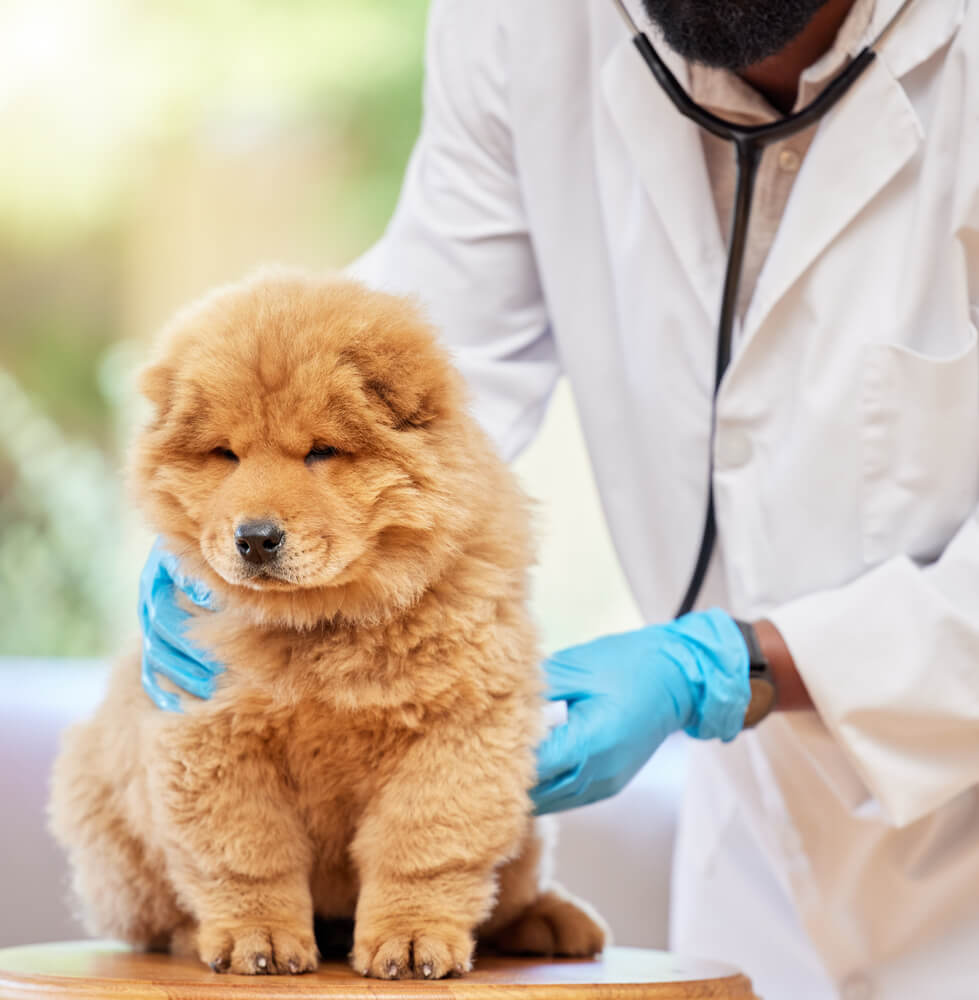
What to Bring
Before you head to the vet for your Chow Chow’s first visit, make sure you have the essential items with you:
- Your Chow Chow’s medical records, if available
- A secure leash and collar or harness
- Any medications or supplements your dog is taking
- A list of questions or concerns for the veterinarian
- A small towel or blanket for your pet to sit on during the appointment
What to Expect
During the first visit, the veterinarian will perform a thorough examination of your Chow Chow.
They’ll check the following:
- Weight and Body Condition: A healthy weight and body condition are important for your dog’s overall well-being.
- Temperature, Heart Rate, and Respiration: These vital signs help the vet assess the general health of your Chow Chow.
- Eyes, Ears, and Nose: The vet will check for any signs of infection, inflammation, or other issues.
- Teeth and Gums: Good dental health is important for your dog, so the vet will examine their teeth and gums for signs of disease or decay.
- Coat and Skin: Your Chow Chow’s coat and skin will be evaluated for any signs of allergies, parasites, or infections.
Additionally, the vet will discuss your Chow Chow’s vaccination needs and administer vaccines accordingly. They’ll also recommend a deworming treatment, as well as discuss flea and tick prevention.
During the examination, make sure to ask any questions or discuss concerns you have about your Chow Chow’s overall health and well-being. This is an excellent opportunity to establish a good relationship with your veterinarian and to ensure your dog receives the best care possible.
Health Assessment
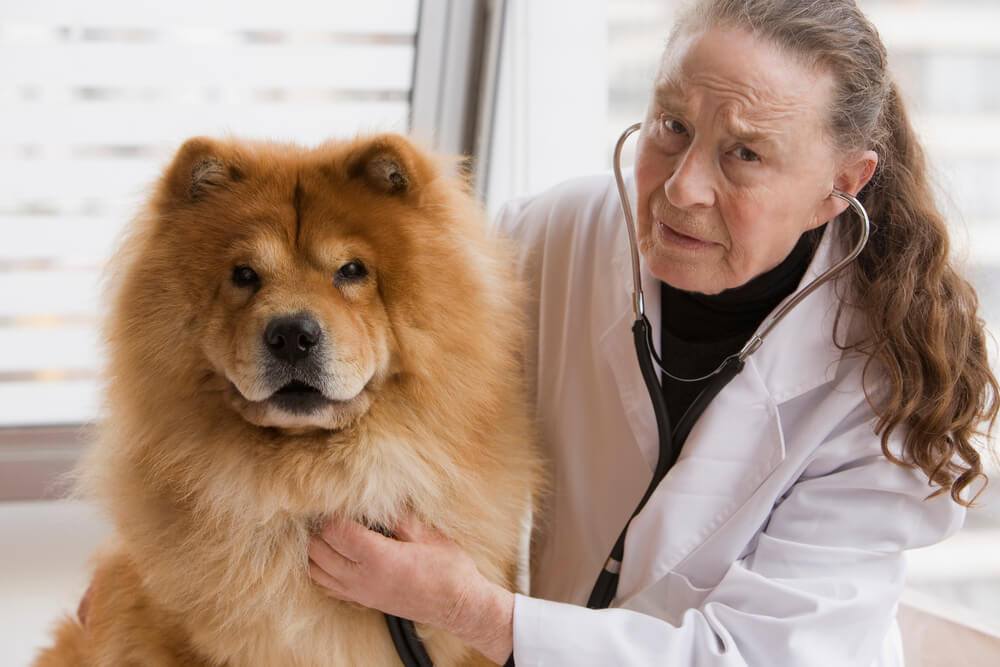
Physical Examination
During your Chow Chow’s first vet visit, the veterinarian will conduct a thorough physical examination to ensure the overall health of your pup. They will check the eyes, ears, nose, and mouth for any signs of infections or abnormalities. Your Chow Chow’s skin and coat will also be inspected to identify any parasites, allergies, or infections.
The vet will assess your dog’s heart, lungs, and abdominal organs to ensure they are working correctly. Vets may also check the joints, bones, and muscles to make sure your Chow Chow is free of any signs of injury or developmental issues.
You can make the examination process more comfortable for your Chow Chow by handling and grooming them regularly at home. This will help your dog become familiar with the sensations of being touched and examined.
Vaccination Records
At your Chow Chow’s first vet visit, be sure to bring their vaccination records. These include any vaccines your pup has already received and any documentation provided by the breeder. Proper vaccination is crucial for your Chow Chow’s health and protection against various diseases.
Your veterinarian will review the vaccination records and provide recommendations on any necessary further vaccinations based on your dog’s age, risk factors, and local requirements. Standard vaccines typically protect against diseases like distemper, parvovirus, adenovirus, parainfluenza, and rabies.
In some regions, additional vaccinations against diseases such as Lyme disease or Bordetella may also be recommended.
Remember that maintaining an updated vaccination record is essential for your dog’s well-being and enables you to provide your Chow Chow with the best possible care.
During your Chow Chow’s first vet visit, a comprehensive health assessment will provide you with valuable information and guidance about your pup’s well-being. Always come prepared with your dog’s vaccination records, and don’t be afraid to ask your veterinarian any questions.
Ensuring your Chow Chow’s health now sets the foundation for a long and happy life together.
Behavioral Analysis
When preparing for your Chow Chow’s first vet visit, it’s important to pay attention to their behavior. Assessing your puppy’s behavior can help you understand any potential issues and ensure a smoother vet appointment experience.
Here are some things to consider when analyzing your Chow Chow’s behavior:
Chow Chows are known for their territorial aggression and independence, which can make them appear stubborn at times. Before the visit, observe how your puppy reacts to strangers or unknown situations.
This will help you gauge how they might respond to the vet and staff at the clinic, allowing you to take necessary precautions to ease their anxiety.
Pay attention to any signs of fear or nervousness in your Chow Chow, such as tail tucking, whining, or trembling. It’s normal for puppies to exhibit these behaviors in new situations, but being aware of them will help you remain patient and supportive during the vet appointment.
If needed, consider using treats or other positive reinforcement methods to make your puppy feel more relaxed and comfortable.
Chow Chows are strong-willed dogs that can sometimes be prone to biting without proper training. Before the vet visit, work with your puppy on basic obedience commands, such as “sit” and “stay,” and practice getting them accustomed to being handled.
This will help ensure a safer and more positive experience for both your puppy and the veterinarian.
Finally, make note of any unusual behaviors or concerns that you’d like to discuss with the vet, such as excessive chewing, barking, or potty training difficulties. By addressing these concerns early on, you can help set your Chow Chow up for success and ensure they maintain a healthy and happy life.
Diet Consultation
During your Chow Chow’s first vet visit, discussing their diet with the veterinarian is crucial for ensuring your puppy’s health and growth. As a responsible pet owner, you should pay attention to your Chow Chow’s nutritional needs since a proper diet helps them maintain a healthy weight, develop strong bones, and support their immune system.
Chow Chows have specific dietary requirements, and it’s important to choose the best food that matches their needs. Their digestive tracts have not evolved much from their ancestors, which makes them suited to fresh, high-protein-based diets that primarily consist of meat, bones, and offal.
When discussing your Chow Chow’s diet with the vet, make sure to address any concerns or questions you may have, such as the ideal dog food brand, food portions, and feeding frequency.
Your vet may suggest switching to a high-quality food containing balanced levels of proteins, fats, and carbohydrates to support your Chow Chow’s growth.
Another crucial factor to consider is your puppy’s age. Chow Chow puppies need a diet that supports their rapid growth and high energy levels. As they become older, their diet should shift to maintaining their optimal weight and preventing diet-related health issues.
To reinforce boundaries and good manners, you can make them sit before meal times for better feeding habits.
In conclusion, don’t hesitate to consult your veterinarian about your Chow Chow’s diet during the first vet visit. They can provide valuable insights and guide you toward making the best decisions for your puppy’s health and well-being.
Next Steps
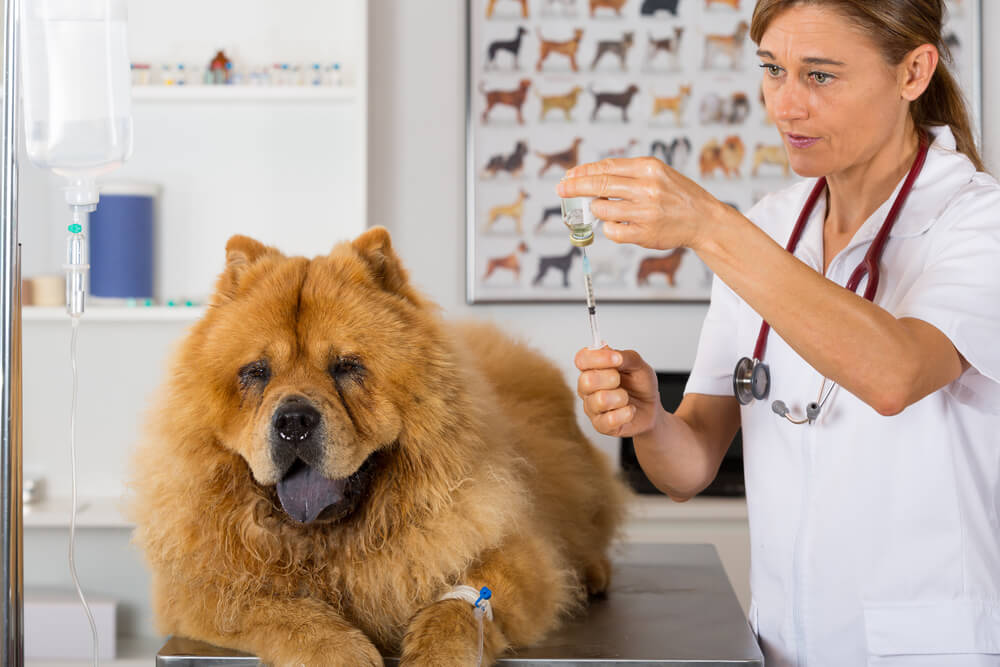
Scheduling Future Check-ups
It’s crucial for your Chow Chow’s health to schedule regular check-ups with the veterinarian. In the first year, plan on having at least three to four visits for vaccinations and general health assessments.
After they turn one, it’s wise to schedule annual check-ups to ensure they’re healthy and up-to-date with necessary vaccinations and preventatives. Keep a calendar or set reminders to ensure you don’t miss any crucial appointments.
Maintain Regular Communication
Establishing clear and regular communication with your vet is essential for effectively caring for your Chow Chow. Don’t hesitate to reach out to your vet with any concerns, questions, or changes in your dog’s behavior.
Remember, they’re there to support you and your furry friend on this exciting journey. Utilizing apps or online portals may help streamline this communication process.
In addition to vet visits, consider joining Chow Chow-specific forums or social media groups. This can provide an invaluable support network, as fellow Chow Chow owners and breed enthusiasts may have insights on specific challenges or best practices worth sharing.
Above all, remember that you’re not alone in caring for your beloved companion, and experienced individuals are available to help ensure that your Chow Chow stays happy and healthy.
Frequently Asked Questions
What should I bring for my Chow Chow’s initial appointment?
When you go for your Chow Chow’s first vet visit, make sure to bring any available medical records, proof of vaccinations, and information about their diet and any medications they may be on. You should also carry a leash, collar, and possibly a blanket or towel to keep your puppy comfortable during the visit.
How soon should I schedule the first veterinarian visit after adoption?
It’s important to schedule your Chow Chow’s first vet visit as soon as possible after adoption, ideally within the first week. This allows your veterinarian to examine your puppy’s overall health and make recommendations for any necessary follow-up care or vaccinations.
What vaccinations does my Chow Chow puppy need, and what is the schedule?
Your Chow Chow puppy typically needs vaccinations for distemper, parvovirus, adenovirus, parainfluenza, and rabies. The vaccination schedule usually begins at 6-8 weeks of age, with booster shots administered every 3-4 weeks until they are 16-18 weeks old.
Your veterinarian will provide you with specific details on the recommended vaccination schedule for your puppy.
What should I expect during my puppy’s health examination?
During your puppy’s health examination, the veterinarian will check their weight, listen to their heart and lungs, examine their eyes, ears, and mouth, and take their temperature. The vet will also check for any signs of parasites or infections and ensure that their growth is on track.
Be prepared to discuss any concerns or questions you have about your Chow Chow’s health and behavior.
What are some essential questions to ask my veterinarian during the visit?
Some essential questions to ask your veterinarian during the visit may include:
- Are there any breed-specific health concerns for Chow Chows?
- What are the recommended vaccinations, and when should they be administered?
- What type of diet is appropriate for my Chow Chow’s age and weight?
- How can I keep my puppy’s teeth clean and healthy?
- When should I schedule the next appointment for vaccinations or follow-up care?
Remember to jot down any additional questions you have before the visit to ensure you cover everything during the appointment.
How can I make my Chow Chow more comfortable for their first veterinary appointment?
To make your Chow Chow more comfortable for their first veterinary appointment, try acclimating them to the carrier before the visit, as well as using positive reinforcements during the drive and vet visit.
Introduce your puppy to being carefully handled, and stay calm and collected during the appointment to help alleviate their anxiety. If necessary, discuss with your veterinarian any anti-anxiety treatments or medications that might be appropriate for your dog.
